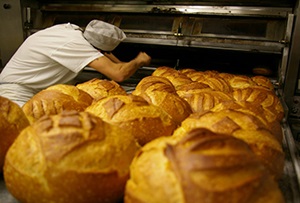Change linked to energy tax

The change to the energy-intensity percentage is linked to energy tax. On reflection, the government does not think it is fair to make energy tax a variable rather than a fixed element of the calculation used to determine energy intensity under the TEK.
Consumption threshold removed
Another condition of the TEK was that an entrepreneur had to consume more than 5,000 m³ of gas or 50,000 kWh of electricity a year to qualify for the scheme. This condition has also been scrapped.
Conditions of TEK
The TEK is intended only for energy-intensive SMEs. To qualify for the TEK, a company therefore has to meet a number of requirements. An SME must:
- have fewer than 250 employees, a turnover of less than € 50 million and/or a balance-sheet total of less than € 43 million,
- be entered in the Commercial Register of the Chamber of Commerce, and
- be energy-intensive, which means that its energy costs must amount to at least 7% of its turnover.
Level of subsidy
Energy-intensive SMEs receive compensation amounting to 50% of the increase in energy costs above a set threshold price, up to a maximum of € 160,000. The threshold price has been set at € 1.19 per m3 of gas and € 0.35 per kWh of electricity.
Please noteThe maximum of € 160,000 applies per company and not per energy contract or branch. If your company has several branches, you cannot therefore receive the maximum of € 160,000 for each branch.
Implementation by RVO
The TEK will be implemented by the Netherlands Enterprise Agency (RVO). On the RVO website a ‘keep me informed’ page has also been made available, through which SMEs can sign up to receive information about the organisation and launch of the TEK.
Please noteThe TEK may not be launched until the second quarter of 2023. Following discussions in the Tweede Kamer [Lower House], however, it seems very likely that the scheme will be launched on 1 January 2023. It will apply with retroactive effect for the period from November 2022 to the end of December 2023. If entrepreneurs are already experiencing problems now, a deferment of tax payments may be a possible solution. Banks have also shown themselves to be more willing to offer credit in such situations.





